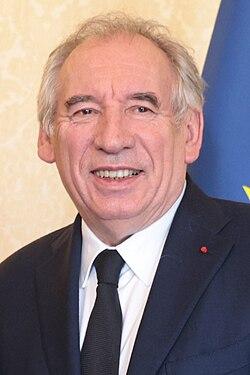French Prime Minister François Bayrou announced Wednesday that he will request a vote of confidence from the National Assembly as his government faces mounting political challenges. The move comes amid growing scrutiny over Bayrou’s leadership and recent policy decisions, marking a critical moment in France’s legislative agenda. This confidence vote is expected to test the stability of Bayrou’s administration and could have significant implications for the country’s political landscape.
French Prime Minister Bayrou Announces Decision to Seek Parliamentary Confidence Vote
French Prime Minister François Bayrou has declared his intention to formally seek a vote of confidence from the National Assembly amid growing political uncertainty. This move, aimed at reinforcing his administration’s mandate, comes as Bayrou faces mounting challenges both within his coalition and from opposition factions. The Prime Minister emphasized his commitment to transparency and accountability, highlighting that the vote will provide a clear mandate for his government’s policy agenda moving forward.
- Bayrou plans to present key government policies for parliamentary review.
- The confidence vote is scheduled to take place within the next two weeks.
- Political analysts suggest the vote could significantly impact upcoming legislative priorities.
- Opposition parties are mobilizing to challenge the government’s position.
| Aspect | Details |
|---|---|
| Political Context | Coalition Struggles, Opposition Pressure |
| Vote Timing | Within 14 Days |
| Expected Outcome | Government Confidence or Potential Reshuffle |
Political Context Behind Bayrou’s Move to Strengthen Government Stability
In the wake of growing political tensions and parliamentary divisions, French Prime Minister François Bayrou’s decision to seek a confidence vote signals a strategic effort to consolidate his administration’s grip on power. The move comes amid mounting pressures from both opposition parties and factions within his own coalition, which have threatened the government’s ability to push through critical reforms. By invoking this parliamentary procedure, Bayrou aims to reaffirm his mandate and solidify a stable working majority, ensuring that legislative initiatives can advance without disruptive gridlock.
The broader political landscape surrounding this maneuver reflects several key dynamics:
- Fragmented legislature: A rise in smaller parties has led to a more complex alliance-building process.
- Polarizing policy proposals: Contentious debates over economic reforms and social policies have fueled dissent.
- Public opinion volatility: Increasing skepticism among voters heightens the stakes for government cohesion.
| Political Factor | Impact on Stability |
|---|---|
| Coalition Fragmentation | Weakens unified support |
| Opposition Mobilization | Increases legislative challenges |
| Public Discontent | Pressures government legitimacy |
| Confidence Vote Outcome | Potentially restores stability |
This tactical use of a confidence vote is viewed by political analysts as a decisive step to either fend off parliamentary deadlock or risk collapse, depending on the support Bayrou can muster. As the vote approaches, keen observers anticipate heightened political maneuvering, with parties recalibrating alliances and debating strategy in a high-stakes contest for government continuity.
Potential Implications for French Domestic and Foreign Policy
The Prime Minister’s decision to seek a confidence vote signals a pivotal moment for French domestic politics. Should the vote fail, the government could face destabilization, potentially triggering early elections or a reshuffle within the ruling coalition. Domestically, this uncertainty may stall key legislative agendas, including labor reforms and economic initiatives aimed at post-pandemic recovery. Key domestic risks include:
- Heightened political polarization in the National Assembly
- Disruption of planned social and economic reforms
- Increased public dissatisfaction amid economic pressures
On the foreign policy front, the confidence vote and its outcome could influence France’s stance on several international issues. A weakened government might adopt a cautious approach to European Union negotiations, NATO commitments, and relations with global powers like the U.S. and China. This potential shift raises concerns about France’s leadership role within the EU and its strategic priorities in defense and trade partnerships.
| Policy Area | Potential Impact of Confidence Vote |
|---|---|
| European Union Relations | Possible slowdown in treaty negotiations and budget contributions |
| Defense & Security | Reassessment of military commitments and increased domestic focus |
| Trade Agreements | Delays in concluding new international trade deals |
Expert Recommendations for Navigating Political Uncertainty Following Confidence Vote Request
Amid heightened political tension, experts stress the importance of strategic communication and coalition-building to effectively manage the fallout from the confidence vote request. Maintaining open channels with opposition parties and key parliamentary members can mitigate the risk of legislative gridlock. Analysts emphasize that transparency in articulating policy objectives and responding to public concerns is crucial for sustaining trust during periods of uncertainty.
Financial markets and international observers also advise vigilance in monitoring economic indicators and public sentiment. Recommended actions include:
- Regular stakeholder briefings to provide clear updates on political developments
- Scenario planning to anticipate possible outcomes and tailor responses
- Reaffirming commitment to reform agendas to bolster confidence among investors and citizens
| Key Focus | Recommended Approach |
|---|---|
| Parliamentary Engagement | Proactive dialogue and consensus-building |
| Public Communication | Consistent messaging and transparency |
| Market Stability | Close monitoring and timely intervention |
In Conclusion
As Prime Minister Bayrou prepares to seek a confidence vote from the French Parliament, the coming days will be crucial for the stability of his government. Lawmakers’ response will not only signal the current administration’s strength but also shape the political landscape in France moving forward. Observers both domestically and internationally will be watching closely as this pivotal moment unfolds.




